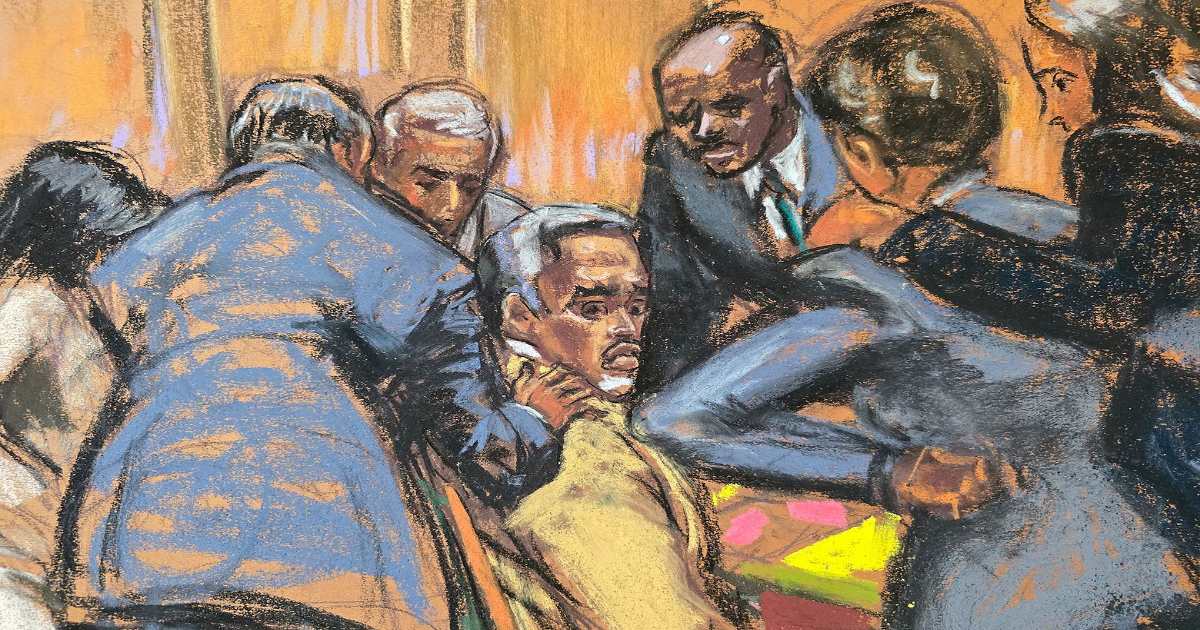The federal trial of the United States vs. Sean “Diddy” Combs ended with a mixed verdict this morning, with the jury finding the hip-hop mogul not guilty on the larger racketeering charge or either of the two counts of sex trafficking (the more serious charges) and guilty of both counts of transportation to engage in prostitution. With this verdict, Combs faces up to 20 years in prison, as each transportation count carries a maximum of 10 years. (How long he is sentenced for each of these counts is now up to the judge overseeing the case.)
The verdict is not particularly surprising: Throughout the trial, the government has struggled to definitively prove some of the more complex criminal charges—namely the RICO charge, which seemed to require more evidence than the prosecution had in this particular case. The transportation charges on which Combs was found guilty were the most definitively proven in court, while the trafficking charges lay somewhere in between. In the end, the jury—composed of eight men and only four women—needed to decide which witnesses they found to be more credible, essentially making the case one less of evidence and more “he said, she said.”
Combs’ defense tried to navigate a narrow road throughout. In some ways, its arguments seemed particularly of our post-#MeToo era, mostly steering around victim blaming or shaming. And yet, in other ways, the case put us into a post-post-#MeToo era, one of #MeToo backlash: In the defense’s opening statements, the team urged the jury to view the witnesses who were testifying to Combs’ alleged abuse as “capable, strong women” while also insinuating that the women were speaking out against Combs merely for a payday. In closing statements, Combs’ lawyers urged the jury to “believe” many of the women that took the stand—but only with regard to their positive sentiments about Combs, not their accusations against him. The pointed wording, tiptoeing around victim blaming while still encouraging a disbelief of the women on the stand, seemed significant to me.
To wit, the foundation of the entire defense was to frame the case as a witch hunt against a successful Black entrepreneur who has supported many people with his legal, and even awe-inspiring, businesses. The witch hunt defense against abuse allegations isn’t new: Take, for example, Johnny Depp’s recent mention of his own legal battle, against ex Amber Heard, in an interview with the Sunday Times, in which he referred to himself as “a crash test dummy for MeToo.” But Combs’ representation seemed to take this even further than Depp had, particularly as the attorneys were dealing with more complex—and harder-to-prove—legal claims.
Now this verdict in the Combs trial is solidifying a notable shift in culture. The allegations against Combs stretch from before #MeToo to the aftermath of the movement, whose launch changed how we think and talk about abuse and harassment. Outside courtrooms, the movement persuaded victims of abuse (especially that perpetrated by powerful men) to speak up against the horrors they had endured. Guilty verdicts for Bill Cosby and Harvey Weinstein helped spur more open conversations about what is—and is not—appropriate conduct with women and subordinates writ large. But even these small bits of action convinced men that they were at risk of being the real victims here. That suspicion has now morphed into a compelling legal defense, giving way to not-guilty verdicts for Depp and Combs.
The law requires proof beyond a reasonable doubt, but there will always be doubt about victimhood and where blame ought to be placed in abusive relationships. Not all crimes are strongly evidential. Some understandings rely on making inferences. This one relied on believing women testifying to a complex, exploitative relationship that was always going to be hard to prove on paper. After the verdict was read, Combs reportedly thanked the jury and “prompted the gallery to clap and cheer.”
What was the gallery cheering for? The sentencing could still be significant for Combs—he is 55 years old and facing up to two decades in prison. And while there is still very little agreement on whether justice was actually served, I feel worried. The jury’s decision today is just another example of the ways in which the law has once again failed to deliver on the promise of #MeToo.
Get the best of movies, TV, books, music, and more.

